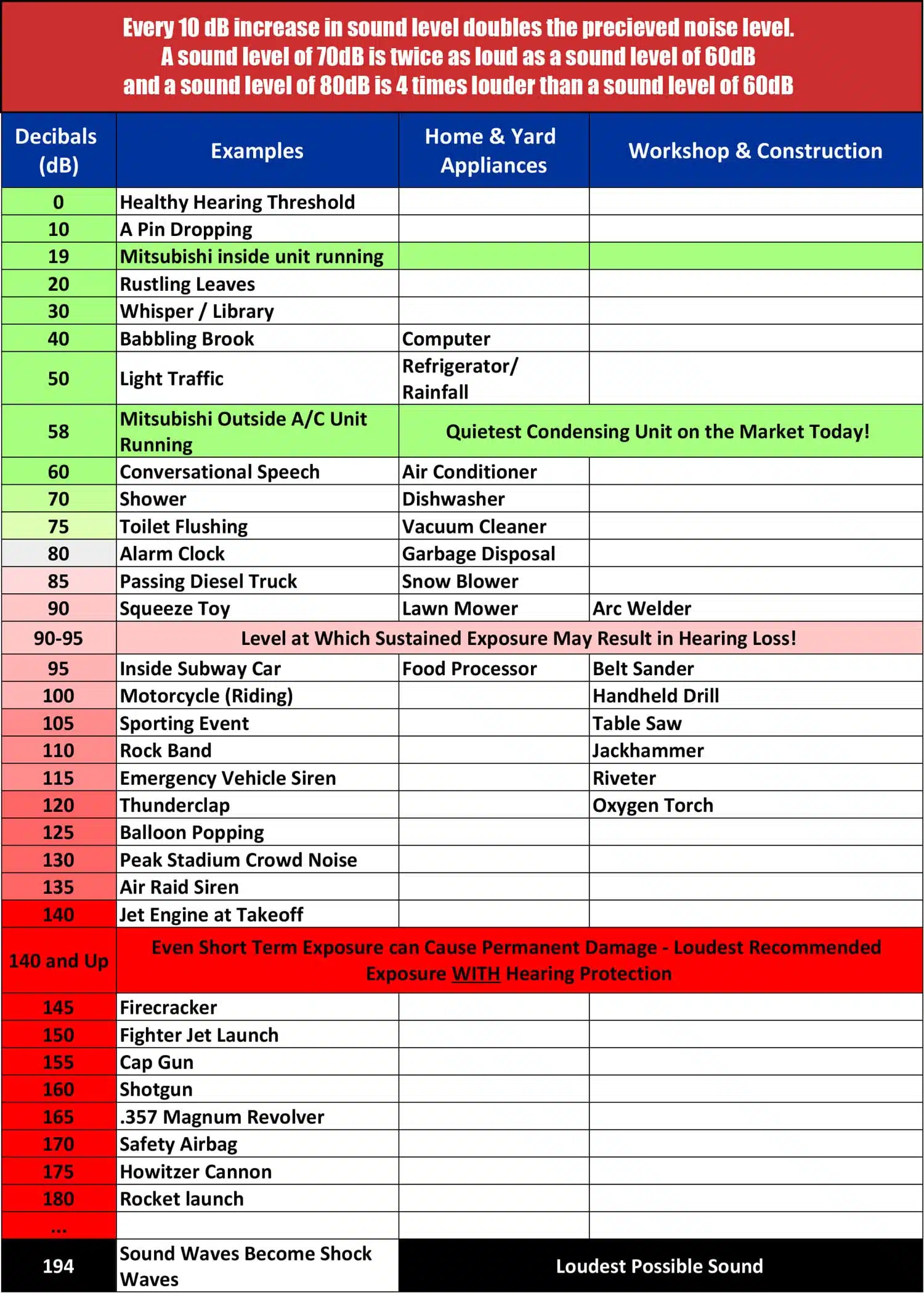Have you ever wondered why concerts feel like they're about to blow your ears off? Well, let's dive into the world of concert db level and explore what makes live music so intense. From the deafening roar of the crowd to the electrifying beats on stage, we're about to uncover the science behind those ear-splitting sounds. So, buckle up, because this ride's about to get loud!
When you step into a concert hall, you're not just entering a venue—you're stepping into an arena of sound waves, vibrations, and decibels. Understanding concert db level is crucial if you're a music enthusiast or someone who cares about their hearing health. We'll break down everything from the basics of decibels to the potential risks of prolonged exposure.
This isn't just about the noise; it's about the experience. Whether you're a seasoned concert-goer or a newbie, knowing the ins and outs of sound levels can help you enjoy the music without compromising your ears. Let's get started, shall we?
- Mkvcinemas 2024 Your Ultimate Destination For Movie Downloads
- 7 Movierulz 2024 Ndash Download Kannada Movies A Comprehensive Guide
What Exactly is a Decibel Anyway?
Before we dive headfirst into concert db level, let's talk about decibels. A decibel (dB) is a unit used to measure the intensity of sound. Think of it like the volume knob on your stereo, but way more scientific. The scale isn't linear, which means every increase of 10 dB doubles the perceived loudness. For example, 20 dB is twice as loud as 10 dB, and 30 dB is four times as loud. Crazy, right?
Now, here's the kicker: concerts typically range anywhere from 90 to 120 dB. To put that into perspective, normal conversation usually sits around 60 dB, while a chainsaw clocks in at about 110 dB. So yeah, concerts are basically like standing next to a roaring engine for hours.
Why Are Concerts So Loud?
There's a reason why concerts feel like a sonic explosion. Musicians and sound engineers want to create an immersive experience that matches the energy of the performance. Amplifiers, speakers, and special effects all contribute to that thunderous sound. But it's not just about making noise—it's about creating an atmosphere that transports the audience into another world.
- Unveiling The World Of Movierulz Kannada Movies New 2025
- Kannada Movierulz Com Your Ultimate Destination For Kannada Film Enthusiasts
Plus, let's be real: people go to concerts to feel the bass in their bones and the beats in their hearts. There's something magical about being surrounded by sound that makes you forget everything else. However, that magic comes with a price—your hearing.
Factors That Influence Concert DB Level
Not all concerts are created equal when it comes to sound levels. Several factors can influence how loud a show gets:
- Venue size: Larger venues often require more amplification to ensure everyone hears the music clearly.
- Genre: Some genres, like rock and metal, are naturally louder than others, such as jazz or classical.
- Equipment: The type of sound system used can make a huge difference in the overall volume.
- Audience size: More people mean more noise, both from the crowd and the band trying to compete with it.
Risks of High Concert DB Levels
Here's the thing: while concerts are awesome, they can also be dangerous for your ears. Prolonged exposure to sounds above 85 dB can cause hearing damage, and most concerts exceed that threshold. Temporary effects include ringing in the ears (tinnitus) and muffled hearing, but repeated exposure can lead to permanent hearing loss.
It's not all doom and gloom, though. By taking a few simple precautions, you can protect your ears and still enjoy the show. More on that later!
How Loud is Too Loud?
Sound levels above 120 dB can cause immediate damage, even after short exposure. At concerts, it's not uncommon for the volume to reach these levels during particularly intense moments. That's why it's so important to be aware of the risks and take steps to mitigate them.
Protecting Your Ears at Concerts
Now that we've established the potential dangers of high concert db levels, let's talk about how to stay safe. Here are some tips to keep your hearing intact:
- Use earplugs: Foam or custom-fitted earplugs can reduce the volume without distorting the sound.
- Stay away from speakers: The closer you are to the source of the sound, the louder it gets. Try to position yourself away from the main speakers.
- Take breaks: If the noise becomes overwhelming, step outside or find a quieter area for a few minutes.
- Use noise-canceling headphones: If you're planning to record the concert or just want to enjoy the music at a safer level, noise-canceling headphones can help.
The Importance of Ear Protection
Wearing ear protection might seem uncool, but trust us—it's way cooler than having to shout "WHAT?" at every conversation after the show. Plus, modern earplugs and headphones are designed to enhance the concert experience without sacrificing safety. So, why not give them a try?
Understanding Sound Pressure Levels
Sound pressure level (SPL) is another term you'll often hear when discussing concert db levels. It refers to the pressure exerted by sound waves on your eardrums. The higher the SPL, the louder the sound. Most concerts aim for an SPL between 100 and 110 dB, which is where the sweet spot lies for most people.
However, individual tolerance varies. Some folks can handle louder sounds without issue, while others may find even moderate levels uncomfortable. It all depends on your personal sensitivity and how well you protect your ears.
Measuring Sound Levels at Concerts
Sound level meters are devices used to measure decibels in real-time. Many smartphone apps can do the same thing, giving you an instant readout of the noise around you. This can be especially useful at concerts, where the volume can fluctuate wildly throughout the night.
The Science Behind Hearing Damage
So, how exactly does loud noise damage your hearing? It all comes down to tiny hair cells in your inner ear. These cells are responsible for converting sound waves into electrical signals that your brain can interpret. When exposed to excessive noise, these hair cells can become damaged or even die off permanently.
Once those cells are gone, they're gone for good. That's why it's so important to protect your ears whenever you're in a loud environment. Prevention is key!
Signs of Hearing Damage
Here are a few warning signs that you might be experiencing hearing damage:
- Tinnitus (ringing in the ears)
- Muffled hearing
- Difficulty understanding speech in noisy environments
- Pain or discomfort in the ears
If you notice any of these symptoms after attending a concert, it's a good idea to see an audiologist for a hearing test.
Concert DB Level by Genre
As we mentioned earlier, different genres of music tend to have different sound levels. Here's a quick breakdown:
- Rock and Metal: Typically range from 110 to 120 dB
- Pop and Electronic: Usually sit around 100 to 110 dB
- Jazz and Classical: Tend to be quieter, often below 90 dB
Of course, these are just general guidelines. The actual volume can vary depending on the artist, venue, and equipment used.
How Venue Design Affects Sound Levels
The layout and acoustics of a venue can significantly impact concert db levels. Some venues are designed to amplify sound, while others prioritize clarity and balance. If you're concerned about noise levels, it's worth doing a bit of research before buying tickets.
Legal Limits and Regulations
In some countries, there are legal limits on how loud concerts can be. These regulations are designed to protect both the audience and the performers from excessive noise exposure. While enforcement can be inconsistent, it's reassuring to know that someone's looking out for our hearing health.
That said, don't rely solely on regulations to keep you safe. Always take personal responsibility for protecting your ears, regardless of where you're attending a concert.
What Happens if Regulations Are Ignored?
Ignoring noise regulations can result in fines for venues and performers. In extreme cases, shows may even be shut down mid-performance. While this is rare, it highlights the importance of respecting sound limits and prioritizing safety.
Final Thoughts on Concert DB Level
Concerts are an incredible experience, but they come with risks if you're not careful. By understanding concert db levels and taking steps to protect your ears, you can enjoy the music without worrying about long-term damage. Remember, it's all about balance—finding that sweet spot between intensity and safety.
So, the next time you're planning to attend a live show, make sure you're prepared. Bring earplugs, position yourself wisely, and don't be afraid to take breaks if the noise becomes too much. Your ears will thank you in the long run!
Call to Action: Share your concert experiences in the comments below. How do you protect your hearing during live shows? Let's start a conversation about staying safe while having fun!
Table of Contents
- What Exactly is a Decibel Anyway?
- Why Are Concerts So Loud?
- Factors That Influence Concert DB Level
- Risks of High Concert DB Levels
- Protecting Your Ears at Concerts
- The Importance of Ear Protection
- Understanding Sound Pressure Levels
- The Science Behind Hearing Damage
- Concert DB Level by Genre
- Legal Limits and Regulations



Detail Author:
- Name : Prof. Stevie Leffler Sr.
- Username : jordane63
- Email : brenna34@yahoo.com
- Birthdate : 1983-05-08
- Address : 9114 Shields Gateway West Gabriellamouth, CO 68609-7258
- Phone : 1-770-928-7913
- Company : Corwin, DuBuque and Abshire
- Job : Plating Operator
- Bio : Omnis praesentium et omnis quisquam est et alias. Itaque sed non odio officiis. Excepturi itaque tenetur quis sed et. Doloremque consequatur ut omnis nihil atque inventore ea.
Socials
instagram:
- url : https://instagram.com/friesen1986
- username : friesen1986
- bio : Aperiam nostrum repellendus laboriosam numquam autem labore. Commodi aut nesciunt maiores sapiente.
- followers : 2845
- following : 1797
twitter:
- url : https://twitter.com/friesen2004
- username : friesen2004
- bio : Voluptatem accusamus quia eligendi non nisi. Eum architecto quaerat qui ab. Labore nobis recusandae quae dolorem cumque.
- followers : 4676
- following : 1983
facebook:
- url : https://facebook.com/tfriesen
- username : tfriesen
- bio : Excepturi dolorum temporibus enim ea. Alias minima et voluptas nam dignissimos.
- followers : 348
- following : 630